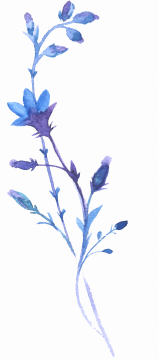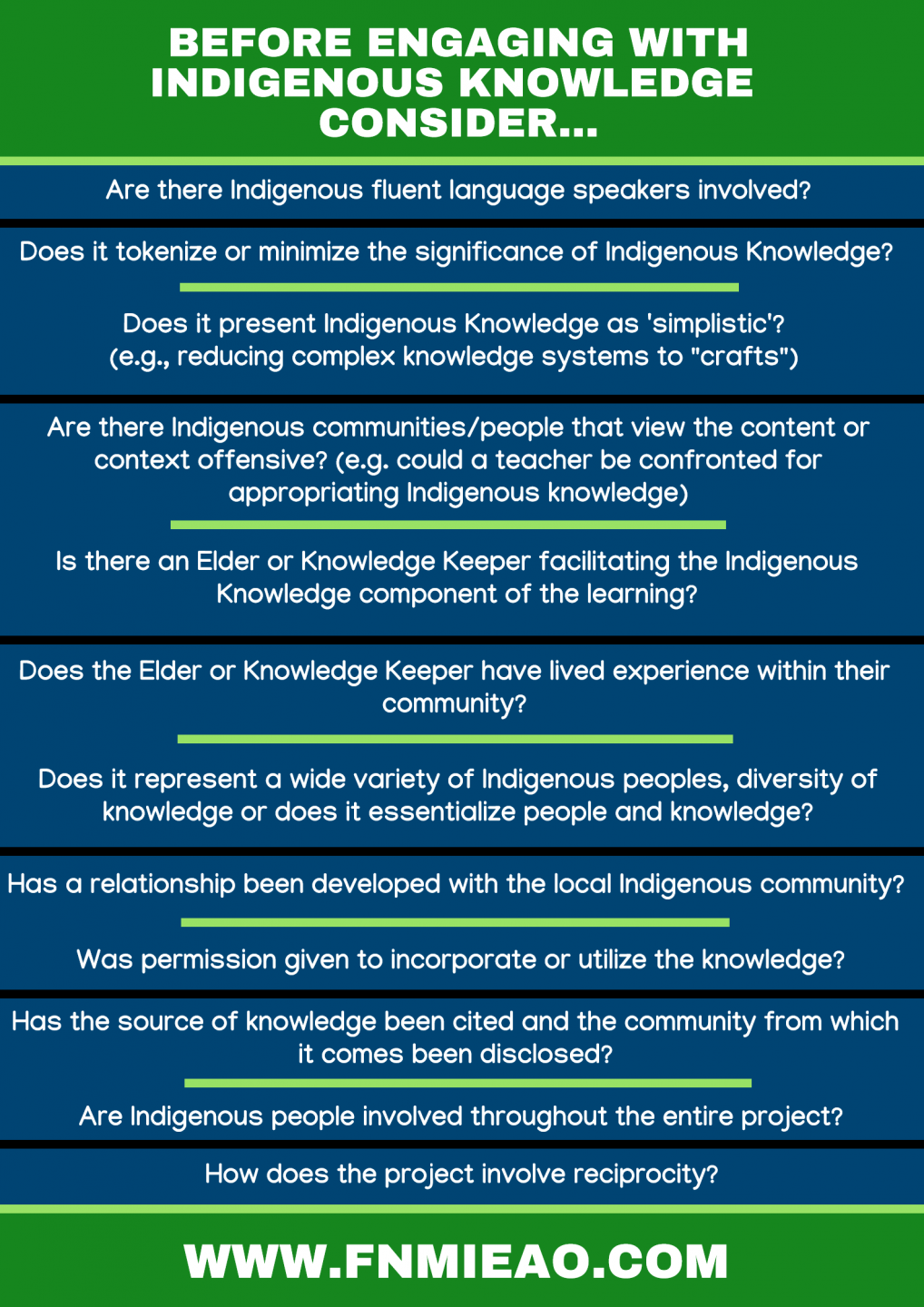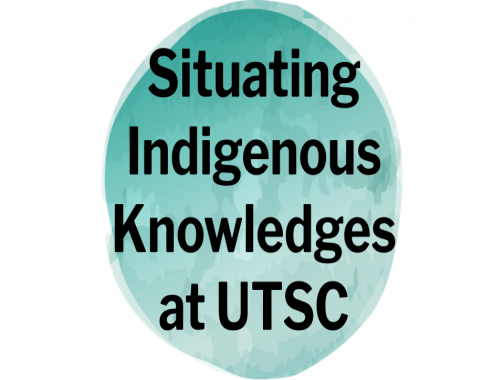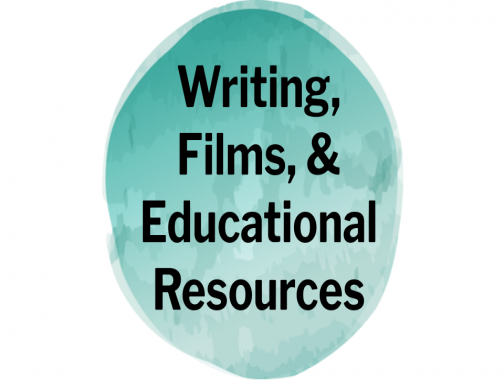This section is deliberately titled using the plural of "knowledges" to denote the diverse histories, languages, paradigms, and pedagogies that reflect

the expertise of Indigenous Nations and communities in particular locations. In the context of Turtle Island, the attempted eradication of these knowledges and knowledge systems is an ongoing legacy of the residential school system. This section will look at some of the materials and resources available for engaging with Indigenous knowledges and epistemologies and thinking critically about anti-colonial work and inclusive educational practices.
United Nations Declaration on the Rights of Indigenous Peoples (UNDRIP)
- The United Nations Declaration on the Rights of Indigenous Peoples, commonly known as UNDRIP, was originally adopted by the United Nations in September 2007 and is also available in an accessible, user-friendly format, summarized in larger text.
- Upholding Rights in Education: A Guide for Educators in Understanding Indigenous Rights is in the Public Resources section of the First Nations, Métis and Inuit Education Association of Ontario (FNMIEAO). It includes a Google Slide resource entitled "Upholding Rights in Education: A Guide for Educators in Understanding Indigenous Rights." Although intended for a K-12 audience, it breaks down and annotates some key sections of UNDRIP that are applicable to teaching in post-secondary settings and provides some sample lesson plans.
Citational Practices and Style Guide
- Citing Indigenous Elders and Knowledge Keepers created by the University of Alberta Librarian, Kelsey Kropiniski centres oral teachings and traditions and considers the colonial models of citation which have historically acted "as a barrier to the respectful inclusion of Indigenous voices in academia."
- Elements of Indigenous Style: A Guide for Writing By and About Indigenous Peoples was written by the late Gregory Younging (Opaskwayak Cree Nation) who was the publisher at Theytus Books, the oldest Indigenous publishing house in the nation, and who was instrumental in developing the Indigenous Studies program at UBC. The guide provides "advice on culturally appropriate publishing practices, including how to collaborate with Indigenous Peoples, when and how to seek the advice of Elders, and how to respect Indigenous Oral Traditions and Traditional Knowledge advice" (from publisher's page).
Learn More about Good Minds Book Store and Educational Resource Centre
FAQ - Indigenous Knowledges
The First Nations, Métis & Inuit Education Association of Ontario (FNMIEAO) provides a guiding framework:

PDF used with permission from the First Nations, Métis & Inuit Education Association of Ontario (FNMIEAO)
Understanding Indigenous Perspectives is a "set of learning modules... created to support and inspire educators and future teachers to gain a deeper understanding of Indigenous perspectives and appreciate how Indigenous knowledge and worldviews can assist all learners in their educational journey. The modules aim to provide an introductory grounding to key issues affecting Indigenous people in Canada as a foundation for further and deeper learning. The modules are meant to work well independent of one another (they are not sequential) but they are also complementary."
These resources were created by Patricia Gaviria, Aboriginal Education Researcher at OISE, and Jean-Paul Restoule, Chair of the Department of Indigenous Education at the University of Victoria and Associate Professor of Aboriginal Education at the University of Toronto. Jennifer Wemigwans and the team at InvertMedia are responsible for the web and graphic design.
Pulling Together: A Guide for Indigenization of Post-Secondary Institutions (2018) is an open-source textbook from British Columbia that provides a model for curriculum developers which recognize the diversity among Indigenous peoples as well as commonalities that "see the whole person (physical, emotional, spiritual, and intellectual) as interconnected to land and in relationship to others (family, communities, nations)." Its six detailed sections include Indigenous Epistemologies and Pedagogies, Pathways Toward Reconciliation, and Building Relationships.
Four Directions Teachings.com was developed by OISE Assistant Professor and President at Invert Media, Jennifer Wemigwans. It is a "visually stunning audio-narrated resource for learning about Indigenous knowledge and philosophy from five diverse First Nations in Canada."
Marie Battiste is a Mi'kmaw educator and retired University of Saskatchewan Professor and author of Decolonizing Education: Nourishing the Learning Spirit (2013). In this July 2015 talk at the University of Regina, Marie Battiste discusses and critiques the initiatives of bringing "Indigenization into the academy."
Answering the Call Wecheehetowin: Final Report of the Steering Committee for the University of Toronto Response to the Truth and Reconciliation Commission is the University of Toronto's response to the Truth and Reconciliation Commission of Canada. This resource includes faculty-specific recommendations and documents the “ongoing initiatives and programming with Indigenous content... across the University of Toronto" (pp.81-117). Derived from the report is a downloadable reference guide outlining thirty-four Calls to Action (2020). The UTSC curriculum review builds directly on these recommendations.
Kelly Crawford is the Assistant Director of Indigenous Initiatives at UTSC and can be contacted to discuss matters relating to:
-
Indigenous initiatives & programs
-
Elder & Knowledge Keeper supports
-
TRC Calls to Action
-
Indigenous House
-
Indigenizing curriculum
- Indigenous Pedagogies and the Benefits for All Learners in Ontario is a module developed by the University of Windsor's Jaimie Kechego, Indigenous Coordinator of Indigenous Curriculum and Pedagogy, and Learning Strategist Lorie Stolarchuk. The other modules are part of the Universal Design for Learning (UDL) for Inclusion, Diversity, Equity, and Accessibility (IDEA) project helping educators understand and incorporate the principles of UDL, EDI, and Indigenous Pedagogies into their course material (2022).
- ENG 4100 Contemporary Topics in Engineering Practice: Decolonizing and Indigenizing Engineering was a course taught by Randy Herrmann and Jillian Seniuk Cicek at the University of Manitoba's Price Faculty of Engineering. The course paired "Indigenous and western knowledges... alongside engineering knowledge," explored in more detail in "Decolonizing and Indigenizing Engineering: The Design & Implementation of a New Course" in the 2022 Proceedings of the Canadian Engineering Education Association (CEEA) (p.8).
- "Switching from Bloom to the Medicine Wheel: Creating Learning Outcomes that Support Indigenous Ways of Knowing in Post-Secondary Education" (2016) appears in Intercultural Education by Associate Professor Marcella LaFever at the University of the Fraser Valley. Based on her review of research "by Indigenous educators, this paper suggests a four-domain framework [based on the four quadrants of the Medicine Wheel] for developing course outcome statements that will serve all students, with a focus on better supporting the educational empowerment of Indigenous students" (p. 409).
The National Collaborating Centre for Indigenous Health created a "series of three [booklets focused]... on racism experienced by Indigenous peoples in Canada – how to understand it in historical context, how it affects individuals and communities, and what programs, policies and strategies exist to combat it." The booklets may be downloaded in PDF format.
Pedagogical Considerations for Teaching About Residential Schools was developed by the First Nations, Métis, and Inuit, Education Association of Ontario (FNMIEAO). It serves as a guide for educators for understanding the impacts of Canada's residential school system.
A curated list of books by Indigenous authors -- created by Winnipeg-based, Cree author David A. Robertson -- explores the legacy of residential schools in Canada. For David, "Stories have been, and always will be, the best way to educate ourselves about the truth."
What I Learned in Class Today: Aboriginal Issues in the Classroom is a University of British Columbia research project developed as a response to difficult and potentially traumatic discussions in class. In part, the project "looks at how the challenges around talking about race work as an educational barrier at the classroom level."
Understanding Decolonization, Indigenization, and Reconciliation is the first section of the BCcampus Open Publishing textbook, Pulling Together: A Guide for Indigenization of post-secondary institutions (2018). It explores how Indigenization is both conceptual and part of a larger process associated with systemic and institutional change, recognizing that there is no set or definitive definition of what Indigenizing is or looks like.
An institutional shift, according to the textbook, would include the following three elements:
1. Including Indigenous perspectives, values, and cultural understandings in policies and daily practices.
2. Positioning Indigenous ways of knowing at the heart of the institution, which then informs all the work that we do.
3. Reflecting on existing operations of our institutions and including Indigenous cultural protocols and practices
Related Reading: "Indigenization as Inclusion, Reconciliation, and Decolonization: Navigating the Different Visions for Indigenizing the Canadian Academy" (2018) by Adam Gaudry and Danielle Lorenz in AlterNative: An International Journal of Indigenous Peoples
Video Length: 47:11
Learning from the Land is in the Public Resources section of the First Nations, Métis, and Inuit Education Association of Ontario (FNMIEAO) website. It includes a Google Slide resource entitled "Akinoomaage Aki: The Land is Teaching Us." In Anishinaabemowin, this word "is formed from two words: aki: noomaage. 'Aki' means earth and 'noomage' means to point towards and take direction from" ("Land as Pedagogy: Nishnaabeg Intelligence and Rebellious Transformation" (2014) by Leanne Betasamosake Simpson in Decolonization: Indigeneity, Education & Society, p.14).
Indigenous Land-Based Learning is published by the Elementary Teachers' Federation of Ontario and is an excellent, accessible introduction to those new to learning about land-based learning.
- "Land as Pedagogy: Nishnaabeg Intelligence and Rebellious Transformation" (2017) by Leanne Betasamosake Simpson in As We Have Always Done guides the reader through an understanding of Nishnaabeg intelligence being rooted in the land, the spirit, the mind, the body, emotions, and the relationships within the community, and an understanding of how the land "become[s] the pedagogy" (p.14).
- "Learning from the Land: Indigenous Land-based Pedagogy and Decolonization" (2014) by Matthew Wildcat et al. in Decolonization: Indigeneity, Education & Society (pp. 1-15).
- "Place-Based Education: Learning to Be Where We Are" (2002) by Gregory A Smith in Phi Delta Kappan (pp. 584 - 594)
- "Muskrat Theories, Tobacco in the Streets, and Living Chicago as Indigenous Land" (2014) by Megan Bang et al. in Educational Research (pp. 37-55)
- "Land Education: Indigenous, Post-colonial, and Decolonizing Perspectives on Place and Environmental Education Research" (2014) by Eve Tuck, Marcia McKenzie & Kate McCoy in Environmental Educational Research (pp. 1-23)
Land-based Education at the University of Toronto Scarborough
Arts, Culture and Media (ACM)
Anishinaabe Land-based Learning and the Arts was a course offered in the Summer of 2022 in collaboration with the Bagida'waad Alliance, a "grassroots organization that includes a majority of members of the Saugeen Ojibway Nation [whose] territory extends from near Thornbury on Georgian Bay around the Saugeen (Bruce) Peninsula and down Lake Huron past Goderich." ACM Associate Professor Marla Hlady describes how this course examines land-based learning and Indigenous Knowledges through an art-making lens.
Sociology Department
The Sociology department at the University of Toronto Scarborough has been a department leader in developing experiential learning opportunities that involve land-based learning. The Campus Farm at the University of Toronto Scarborough is home to the Three Sisters and Medicine gardens, supported by plant Knowledge keeper and agriculturalist, Isaac Crosby. Related Viewing: Isaac Crosby introduces the Indigenous Garden at UTSC and explains Birch Tree Knowledge.
In June 2022, the Global Field School: Indigenous Costa Rica (SOCD02H3F) field school course, led by Professor Dani Kwan-Lafond participated in a 14-day "experiential and land-based learning trip to Indigenous territories in Costa Rica, in order to learn about settler colonialism, Indigenous communities, and UNDRIP (the United Nations Declaration on the Rights of Indigenous Peoples)." Photographs from this learning experience are posted on the UTSC Sociology flickr website and individual student blogs from the trip, linked off the trip's main page.
Resource Fair for New Faculty and Librarians, August 2022
First Nations Traditional Plants and Uses was a handout provided by UTSC Indigenous Engagement Coordinator Juanita Muise (Qalipu First Nation, Newfoundland) during the welcome ceremony of the new Faculty and Librarians at UTSC. Published by the Alberta Teachers' Association, it provided additional learning to Juanita's teaching on the traditional medicines used during the morning ceremony -- cedar, sage, and tobacco. It should be noted that traditional protocol should be used when working with sacred plants and, as the publication states, "guided by local Elders, Knowledge Keepers or Cultural Advisors."
Within Quercus, the University of Toronto Scarborough Office of Student Experience and Wellbeing hosts a page on "Acknowledging the Land" with a series of questions and answers on the significance of Land Acknowledgements. In addition, it hosts the video, "Land acknowledgments: uncovering an oral history of Tkaronto" [Video Length 3:42]
“Queer Events (QE) is a local 2SLGBTQ+ organization committed to working towards a strong, inclusive & accessible Queer community.” The group has put together a resource page showcasing some “Notable Queer Indigenous, Black and People of Colour” with the intent of showing how these leaders can be erased not only from their cultural communities but also from “the mainstream Queer community.”
- Two Spirit and LGBTQIA Indigenous Resources is a Resource Guide created by the University of Toronto Library. The guide is "a starting place for research relating to Two Spirit and LGBTQIA* Indigenous communities... [featuring] ... research reports, documents, books, films and community resources."
- "What's Normative Got to Do with It? : Toward Indigenous Queer Relationality" (2020) by Jodi A. Byrd, Associate Professor at Cornell University and member of the Chickasaw Nation, in Social Text which examines the idea of normativity as function of "hegemonic power... that draws lines of distinction between what is deemed normal and natural" and the "strange and disjointed intimacy" between Indigenous studies and queer studies" (p. 118; p. 105).
- Two-Spirit and Indigiqueer Studies from the University of British Columbia "is an interdisciplinary field grounded in the languages, cultures, histories, geographies, identities and contemporary experiences of Indigenous peoples in relation to gender and sexual expression." The website has an extensive resource section.
- "LGBTQ+ and Two-Spirit" is a downloadable PDF poster from the Native Women's Association of Canada (NWAC) with two information sections: "Indigeneity & Gender Diversity" and "Supporting LGBTQ+ and Two-Spirited Peoples."
- Any Other Way: How Toronto got Queer (2017) edited by Stephanie Chambers et al.
- 2SLGBTQIA+ Black Indigenous People of Colour: Voice in History is a downloadable poster written and created by Emma N. Awe and published by The Canadian Centre for Gender and Sexual Diversity
- "Impacts of Colonization on Indigenous Two-Spirit/LGBTQ Canadians’ Experiences of Migration, Mobility and Relationship Violence" (2017) by Janice Ristok et al. in Sexualities is a "community-based research project that examined the experiences of migration and mobility of Indigenous peoples who identify as Two Spirit, lesbian, gay, bisexual, transgender and/or queer (LGBTQ)" (p. 767). In the context of the project, one participant explained how colonization has impacted their identity as TwoSpirit/LGBTQ: "… at one time Two Spirited people, we had a special place in the community, but in modern times, we’re looked on as trash even by our people, cause of the European mainstream influence … they’ve been Catholicized or assimilated by the Roman Catholic church, they’ve taken those values to heart and they look down on gender diversity and sexual diversity. (First Nations, lesbian, transgender mtf, Vancouver)" (p.779).
Video Length: 9:39
Video Length: 4:24

